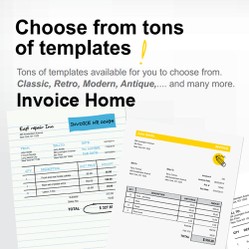
Types of Stock Trading Orders
There are many different types of orders you can make when you enter your stock order into your online broker's website.
 There are many different types of orders you can make when you enter your stock order into your online broker's website. The differences are crucial, and depending on the stock you are trading, it may end up costing a lot if you aren't careful.
There are many different types of orders you can make when you enter your stock order into your online broker's website. The differences are crucial, and depending on the stock you are trading, it may end up costing a lot if you aren't careful.
To understand what type of order is best, you must first understand the "bid price" (the price at which traders who want to buy the stock are willing to buy it at) and the "ask price" (the price at which traders who want to sell the stock are willing to sell it at). The difference in the "bid" and "ask" is known as the "bid/ask spread". For large or mid-sized companies that have hundreds of millions or billions of shares held by the public, the trading volume (number of shares traded daily) is so high that the spread is usually just a penny.
For smaller companies, that spread could be anywhere from two cents all the way up to thirty cents or more. The fewer shares traded, the harder it is to match up buyers and sellers at the same price. For companies that only trade a few thousand shares each day, that spread may not only be large, it may increase every time somebody tries to execute a trade as buyers and sellers scramble to maximize their profit.
Market Orders
The simplest and most basic type of stock order is a market order. It tells your broker to execute a trade (buy or sell) of your selected stock, at the price it is being offered, at the exact second the trade hits the exchange floor. This is perfect for those large company stocks mentioned earlier. However, for small company stocks that have a large spread, you are asking for trouble with a market order. Let's say a company has a bid at $3.00 and an ask at $3.35. If you put in a market order to sell your shares, you will sell them at $3, not $3.35. The trade execution for market orders always happens at the bid price for selling and ask price for buying.
Limit Orders
A limit order buys or sells a stock at a price you specify, or better. A buy limit order is fulfilled at the limit price or lower while at the limit price or higher, a sell limit order takes place. But here's the kicker: there is no guarantee that a limit order will execute. It only gets executed if the market price of the stock reaches the limit price. The advantage is that you won't pay more, or sell for less, than your chosen price for a stock. This is perfect for smaller stocks with wide spreads. For large stocks where the spread is only a penny, it makes little sense.
Stop Loss Order
This is probably the most underused, yet useful, order an investor can make for a stock. The stop loss order sets a price to sell a stock - the "stop price". When the stock price reaches the stop price, the order becomes a market order. The order is entered so that it will execute a price just below the current market price. You'll want to use these orders to limit a loss on a stock. Not all brokerages offer this option, so be sure to check. For example, when you trade stock with Firstrade, you can use stop-loss orders.
Video on Stock Trading
Steps to Take
Best uses of these orders
Use Stop-Loss Orders when the market is volatile
If you buy a stock when the market is tumbling, a stop-loss will protect you if the tumble become a full-on crash or bear market.
I recommend: Set your stop-loss 7% below the price you bought at. That's a reasonable loss to absorb while not getting stopped out too early.
Orders for Small Companies
Stocks that don't trade many shares can have their price move a lot in just one trade. Use limit orders whenever possible.
I recommend: Don't put in orders of more than 500 shares at a time for stocks with a large spread. It won't get filled in its entirety.
Order Tips
Some useful advice about orders.
- Be sure any unfilled orders are cancelled at the end of the each trading day.
- Verify that the correct amount is added or debited from your account each day.
Which Stock Trading Order would you get?
You might also like
Make Invoice Home your home for invoicingThe ideal place for independent businesses to go to for sending out invoices ...
How To Negotiate Almost AnythingDon't pay top dollar for a product or service until you try negotiating. Try ...






 First Grade is a Perfect Time to Invest in Your Child's Math Educationon 03/26/2012
First Grade is a Perfect Time to Invest in Your Child's Math Educationon 03/26/2012
 Writing a Classroom Grant? Consider Investing in an Online Math Programon 03/25/2012
Writing a Classroom Grant? Consider Investing in an Online Math Programon 03/25/2012
 It's Never Too Early to Financially Invest in Your Child's Educationon 03/25/2012
It's Never Too Early to Financially Invest in Your Child's Educationon 03/25/2012
 Starting a Carpet Store from the Ground Upon 03/17/2012
Starting a Carpet Store from the Ground Upon 03/17/2012



Comments